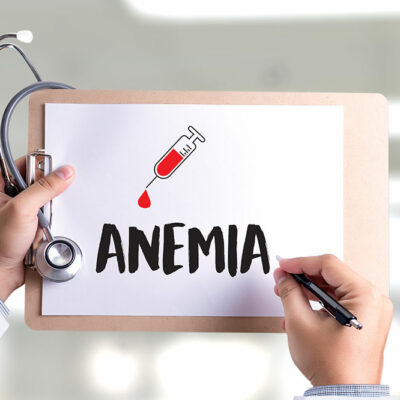
7 common signs of Huntington’s disease to know of
Huntington’s Disease (HD) is a rare neurological disease affecting the part of one’s brain that controls bodily movements. Due to the disease, the affected nerve cells weaken, break down, and die over time. The physical and neuropsychiatric symptoms and their progression may vary from one person to another. HD is diagnosed by closely studying one’s medical history, neurological exams, diagnostic imaging, and genetic tests. Let’s learn more about its symptoms and who it affects primarily.
Who does Huntington’s Disease affect?
Since HD is an inherited or genetic disorder, it is more likely to affect those whose family members or close relatives have this condition. It is primarily triggered by a mutation in the gene responsible for producing the huntingtin protein. Usually, the HD symptoms start to show in middle-aged individuals after their 30s or 40s, but if one shows signs before 20, it’s termed juvenile Huntington’s disease.
Common symptoms of Huntington’s disease
Early signs of HD, especially in the case of juveniles, might be more tricky to diagnose, enabling the condition to progress rapidly. If left undetected and untreated, the symptoms may worsen.
Involuntary movements
The most common symptom is involuntary, jerky movements, and may manifest in ways like:
- Muscle jerking
- Muscle rigidity
- Sudden muscular contractions or tremors
- Frequent falls, stumbling, and difficulty in walking
- Seizures, more commonly seen in juvenile cases
- Uncoordinated eye movements, which can be slow or seem unusual
These symptoms may worsen when the person feels a surge of intense emotion, including stress or anxiety, and significantly affect one’s ability to carry out daily tasks or hold conversations.
Abnormal body postures
An individual affected by HD may showcase abnormal body postures, gait, or balance due to loss of voluntary control over one’s body. They also tend to display dance-like movements referred to as chorea. The movements may be commonly seen in one’s feet, face, torso, or fingers.
Speech and swallowing difficulties
Huntington’s Disease can affect the muscles responsible for speech and swallowing. Individuals may experience slurred speech, difficulty articulating words, and challenges in swallowing. These issues can contribute to malnutrition and aspiration, where food or liquids enter the airway instead of the digestive tract.
Cognitive impairment
HD primarily affects the brain and can lead to several impaired cognitive functions, and may manifest as:
- Mood swings
- Memory lapses and difficulty in concentrating on tasks at hand
- Difficulty in learning new skills or answering questions
- Sudden anger outbursts
- Lack of discerning judgment or acting without thinking
- Inability to understand one’s behavior
- Inability to process thoughts
- Difficulty organizing, planning, or making decisions
- A rapid drop in productivity
- Behavioral changes
Psychological disorders
HD patients are more prone to develop depression. They may become irritable, withdraw from socializing, or become sad or numb. They may also lose sleep and experience exhaustion and low self-esteem. Apart from depression, they risk developing obsessive-compulsive disorder or OCD, bipolar disorder, or mania.
Stomach issues
Inflammation in one’s esophagus and stomach, choking, constipation, and nausea are other common signs of HD.
Overactive immunity
Research has found that Huntington’s mutation may lead to an overactive immune response, wherein the immune cells begin to attack one’s body.
There is no definite cure for Huntington’s Disease, but various treatments and therapies are available to manage symptoms and improve one’s quality of life. The condition requires a multidisciplinary approach involving neurologists, speech therapists, and occupational therapists.


